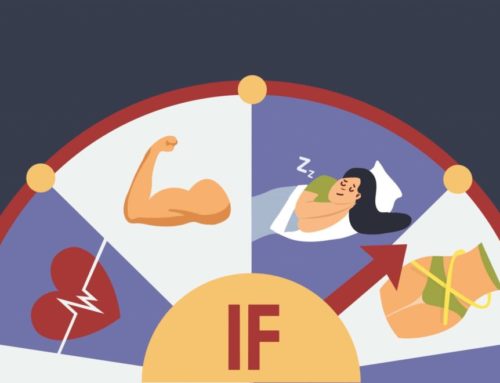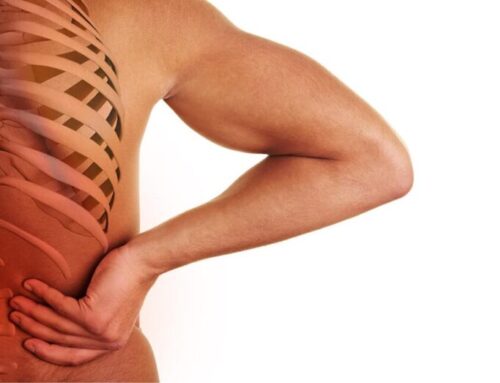I think it’s a common secret nowadays. Everyone has tried to follow a diet and to lose kilos from time to time. Enthusiasm at the beginning dreaming of a new body with no extra kilos or fat.
As we say, then we woke up to the tough reality. In any case, dreams last for a while. The result of these diet applications is known. Nothing happens and nothing has changed.
As it is reasonable, a feeling of frustration dominates the next minutes or days of our lives, followed by disappointment.
The common question in the mind of every person involved in this process also known. What was wrong? What is missing? Maybe nothing is missing but we do not know all the truth.
Well, here in this article we come across a new proposal of dietitians for more effective weight loss, but also for enhanced muscle reconstruction.
This program – known as Calorie Cycling – promises more targeted results, with no “Weight Plateau” effect.
Here we go for another exciting journey into this new approach
Calorie Cycling – What it is

While in a classic diet you set the daily calories at a fixed value (e.g. 1400, 1200 or 800 calorie diet, etc.), the new trend in weight loss suggests a caloric intake for improved benefits.
This program – known as Calorie Cycling – practically applies what many people empirically did when faced with what we call the “Weight Plateau” – a sudden diet or training program ineffectiveness to reduce the body weight.
How we go so far? Everything understood?
The new “hot” trend in weight loss (Calorie Cycling) prevents the body from “getting used” to a particular diet or training program and stop performing.
Using constant alternations (dietary or a combination of nutritional and training) – it enhances the metabolic function of the body and promotes the burning of body fat constantly.
In addition – and in parallel with the enhanced fat burning -, it also promotes greater muscle gains in the body.
However, what is the best thing about the Calorie Cycling program?
Do not feel bored, more exciting things are ahead.
The constant change of caloric consumption applied gives you the opportunity to change your meals (depending on the day and the caloric limit that corresponds to it).
This ensures – in addition to the physical benefits mentioned above – greater satisfaction, psychological empowerment and dedication to program.
The fact that this program does not impose food restrictions makes it easier for many users having difficulty with “strict restrictive diets”.
Calorie Cycling is a very popular weight loss system moving in a “cyclic” consumption between few and more calories, not allowing the body to find a specific rate of metabolism.
This constant change of diet (or in combination with the training program) can bring huge benefits indeed, visible on your scale.
Non-dietary restriction (everything is allowed: carbohydrates, fats, proteins), except for the time limit of their consumption, is an ideal way to have visible physical benefits but also to stay “faithful” to the program.
Though Calorie Cycling is not really a diet or a nutrition program – rather classified as a “regular” weekly calorie intake – it has become extremely popular as a “weight loss and muscle strengthening program” on the internet, gaining millions of fans.
“Calorie Cycling” System – Study on Effectiveness
A valid study conducted on the effectiveness of the Calorie Cycling calorie intake system showed interesting results.
The research was conducted over a period of 14 days (2 weeks), where participants were asked to follow an 11-day low-calorie diet program, followed by a 3-day increased caloric intake program.
This alternation of a few and more calories took place as follows: 11 days a few calories, 3 days more calories, and 11 days a few calories and again 3 days more calories.
(Note that there are other similar scientific studies on caloric intake using different time scales, more or less days.)
The conclusion is clear.
Switching diets to calorie intake has real benefits, physically and psychologically.
The user displays more enhanced metabolic function, meaning:
- enhanced energy reserves
- lower feeling of fatigue
- improved mood
- increased fat burning 24/7
- a more balanced hormonal state
- greater confidence
- limited feeling of hunger
- reduced need for erratic snacking
- improved quality sleep
Why is this Diet Method (calorie cycling) considered as “Normal”?

Calorie Cycling largely “imitates” real life, primitive life, when food not given daily and not always in the same amount (and therefore of a different caloric value).
The primitive man went out hunting and sometimes achieved a goal, while other times not forced to feel content with fruits, berries and vegetables found in its environment at a given time of year.
Therefore, this nutritional model – and always according to experts – is much closer to human nature than a specific caloric and quality meal every day.
It is very likely that the reason conventional diets do not succeed, leading to the so-called “Weight Plateau”, is precisely this dietary monotony.
Monotony in food quality and amount, leading the body to “being used”, acquiring a kind of tolerance.
The issue, surely, lies in the goal set by each person.
Achieving a temporary loss of many kilos is possible (not to say relatively easy).
Nevertheless, achieving a long-term and permanent weight loss is something else.
It is difficult and requires special effort and a system as well.
According to statistics collected, almost 60% of the people who were led to a hasty and rapid loss of many kilos started regaining those lost kilos within the next 12 months at most.
In addition, 30% of those who regained the weight lost, were led to more kilos than their original weight.
Therefore, what is required – in no case – is not just the loss of weight, but also the maintenance of the desired weight constant after achieving it.
Regular “Calorie Cycling” and Dieter Psychology
We all know the importance of psychology as a parameter for a successful weight loss.
The Calorie Cycling system – a continuous (but specific) alternation of caloric intake – offers the dieter an “apparent freedom” strongly supporting its psychology and commitment to the weight loss process.
If you ask experts (psychologists, nutritionists, dietitians) about the role of the psychological factor in weight loss, you find out they directly answer that it is a catalyst, determining the outcome of the process.
Bad psychology is the main “enemy” in losing weight, stress, bad mood, negativity and lack of self-confidence leading to increased appetite (and especially for 100% unhealthy and fattening foods).
However, how can you maintain a good psychology and mood when you see your efforts do not work as you would expect?
Falling into the “Weight Plateau” – the “freeze” of the scales – it makes sense to lose faith in the effort made, to be disappointed and dominated by negative emotions.
That’s where most diets fail.
Once the dieter comes to this state, where its efforts to bring visible benefits do not work anymore, ends up in abandoning the effort.
On the contrary, good psychology seems to increase a person’s self-confidence and therefore his degree of commitment to the process.
The Calorie Cycling system prevents stress and negativity by offering a feeling of freedom in choosing meals.
First, let’s say – and it is extremely important – that there is no “food ban”.
In addition, the circular calorie intake system gives you days of “strictly low calories” but also days of “freedom”, filling you with satisfaction and strength to continue the process.
Finally, the biggest advantage is that with this strange way of eating you manage to avoid the “Weight Plateau” phenomenon.
“Weight Plateau” Phenomenon – what it is

I continue to refer to the “Weight Plateau” phenomenon, but maybe I should explain better, what it is and how it affects the weight loss process.
This phenomenon – also known as the “static scales” phenomenon – is quite common in those trying to lose weight.
Most dieters will experience this phenomenon one or more times (depending on the ultimate weight loss goal) in the process.
The “Weight Plateau” phenomenon is manifested by a sudden inability / refusal of the body to lose further weight (despite the fact that you consistently continue the diet or training program followed).
Experts attribute this denial of the organism (manifested suddenly) to the fact that the organism acquires a kind of tolerance.
Although there is no official scientific evidence to explain this phenomenon, experts have observed that this denial of weight loss occurs suddenly after a long period of implementing a specific diet or exercise program.
One way – the most effective – to achieve your goal by avoiding these “delays” is to apply small and regular changes to the diet and exercise programs you followed.
Conclusion
While a diet of 500 or even 800 calories can have visible and even fast results, in reality it can damage your metabolism leading to difficulty or inability to lose weight.
Furthermore, the application of the same meals repeatedly on a daily basis is very likely, to lead you to stagnation (“Weight Plateau” phenomenon).
Metabolism: How and why does affect the weight loss?
We have heard many people stating; “I do not lose weight because of a slow metabolism”
Finally, what is the metabolism and how relates to weight loss?
Metabolism is nothing more than a set of biochemical processes taking place in our organism and including:
- processing of food consumed (digestion)
- supplying the entire body with energy
- repairing of cell tissues
- Strengthening the immune system
- strengthening all biological processes of the organism
Essentially metabolism is the process by which food converted into energy then distributed throughout the body, confirming its proper functioning.
Therefore, when your diet is poor, deficient in nutrients or extremely reduced in quantity, then your organism – as is logical – cannot function properly and efficiently.
If you put bad gasoline or little gasoline in your car, what are the chances of finally reaching your destination?
The same goes for your organism. Think of it as a machine requiring care and specific procedures to function properly.
Nevertheless, how much lean fat (not muscle mass) can an organism burn to save the energy needed?
Not every human body is the same and does not have the same needs.
It is exactly – as mentioned – as with the case with the cars.
Is it possible for a small car to need the same petrol (i.e. the same energy) as a truck or an airplane?
Certainly not. Under the same reasoning, a petite man is not possible to need the same energy as a tall, muscular, athletic man.
Besides, a man does not need the same energy as a woman (as their body and function are quite different).
However, what does “necessary energy” mean and how is it determined?

By “energy necessary for an organism”, we mean the minimum energy required for all its biochemical functions to be performed properly.
Cardiovascular function, respiration, brain function, vision, stabilization of internal body temperature, muscle functions and in general many important functions vital for every living organism.
Therefore, this is exactly what we call “Basic Metabolic Rhythm” or “Calm Metabolism”.
It is the minimum number of calories (i.e. the minimum energy) – varying from person to person – required to supply all the basic functions of the organism for one entire day (24 hours).
This minimum amount of energy – resulting from a person’s daily meals – does not include other functions of the person (such as physical exercise), except – as the name “resting metabolism,” indicates – the energy that the organism needs in a state of complete rest.
Thus – and approximately – while a man needs approximately as little as 1800 to 2000 calories, a woman respectively usually needs only 1500 calories.
Finally, why are we talking about “slow metabolism” and difficulty in losing weight?
As mentioned earlier, the Basic Metabolic Rate (BMP) is the minimum energy needed by the organism needs purely and only for its biochemical processes in order to remain alive and to be fully functional.
Metabolism, however, is influenced by a variety of factors in a person’s daily life, and ultimately determines how “slow” or “fast” it is (that is, how easily or difficulty the body metabolizes fat for energy production).
Therefore, a person with a “slow metabolism” burns fewer calories from a person of a high metabolism.
This means, a person with a “slow metabolism” loses much less weight (since it is much harder to burn body fat) than a person with a “fast metabolism” who almost immediately converts the foods consumed into beneficial energy (preventing its deposition and storage in the form of body fat).
Which everyday factors affect the metabolic Rhythm?
A brief overview of daily life reveals what can affect – negatively or positively – the metabolic function of the organism
The sleep
Sleep and rest (body & mind) are extremely important for the health and smooth functioning of the organism.
However, it is also very important for its metabolic function, determining the ease or difficulty with which a person loses or gains weight.
Research has confirmed that poor or insufficient sleep increases cravings for unhealthy, fatty, sugary foods, enhances overeating and promotes obesity.
The gender
As pointed out earlier, gender plays an important role in the energy expended by the body (with men having much greater energy needs than women).
To an extent, the muscle / fat ratio of the body plays a decisive role in this.
As known – for biological reasons – the female body has much larger fat stores than the male (a fact related to her menstruation and the possibility of pregnancy).
However, this difference in the ratio of body fat and muscle also affects a woman’s metabolic rate, which – as experts say – is about 5 – 10% slower than a man’s metabolism.
Therefore, one way to increase your metabolic rate – and since gender does not change – is to include physical exercise in your daily routine.
Increasing the percentage of muscle in the body changes the muscle / fat ratio and increases the metabolic rate.
The age
Clearly, age is another factor affecting a person’s metabolic function.
A child in adolescence has a metabolism working in the “red”. Fast and efficient to enhance the child’s development, supplying its body with the energy needed.
On the contrary, a person in the third age has much lower energy needs, with the result that his metabolic rate is now slower.
Age is a factor that – unfortunately – we cannot change.
This is why, people over 65 to 70 years of age show a dramatic decrease in their metabolic rate reaching up to 25%.
Therefore, it is no coincidence that – as we get older – we lose weight more and more difficult.
Besides, – one will easily notice – that we gain weight much easier.
In this case, an active life and a basic but regular physical exercise can help maintain the person at a healthy body weight with fewer health problems.
The genes

In many cases – a large percentage of which is responsible for the increased body weight of some individuals – are both the genetic factor and the heredity.
Health problems that may be aggravated by a person, medications, surgeries, are likely to affect its metabolic function.
The same goes for the “heredity” factor.
Many people tend to “inherit” from their family a specific predisposition to obesity and fat deposition in specific body fat stores.
The Hormones
One reason that weight loss (also stored body fat) differs between men and women is the “hormone” factor.
Hormones affect the way you store fat in the body, the way you burn it, the ease or difficulty with which you lose or gain weight.
In addition, hormones affect the person’s appetite and cravings for unhealthy foods.
What is the difference (relating to metabolism) of Calorie Cycling from common Diets?
As already pointed out, weight loss is directly related to hormones.
The rate at which a person will “burn” calories (fat) to produce energy depends to an extent to its hormonal status.
However, did you know that the reverse is also true?
The “what” we eat often affects our hormones, determining our health.
Many centuries ago, food was not a given in everyday life.
There were days when food was plenty, but there were also endless days of hunger.
For this reason, the human organism had found a “survival pattern”.
The brain sends a “message” to the organism to maintain the energy received (from the days of plenty of food) in the form of body fat.
In this way, it was possible to recall this energy during the difficult days of famine that would follow in order to survive.
The organism to implement the «drop» of the pace at which the available energy used among these phases uses these «changes». Below we see some of these changes:
- reduction in testosterone levels
- reduction in levels of physical activity
- increase of hours of rest and sleep
- reduction of energy costs with “adaptive thermogenesis” (hunger function)
- Increased levels of the hormone cortisol (also known as the stress hormone responsible for many health problems)
- reduction in thyroid hormone levels (directly related to metabolic function)
- increase in the levels of the hormone ghrelin (another hormone related to metabolism, produced by the digestive system sending to brain the signal for being hungry)
- reduction of leptin levels (also known as hunger hormone is responsible for giving the signal “saturation” to brain)
The organism goes through exactly the same process, respectively, when you apply one of these “hunger diets” circulating on the internet.
However, these are exactly what you should avoid in order to achieve a proper and permanent weight loss.
With regular Calorie Cycling you do not push your organism into a long-term state of hunger, but into a cyclical alternation of days with more and less freedom in the quantity (and not in quality) of food.
As a result, your organism is not “stressed” and its metabolic rate is not affected.
In addition to the rolling system indicated by the Calorie Cycling system, the metabolism is enhanced and the entry of the organism into a state of “habit / tolerance / inefficiency” is avoided.






